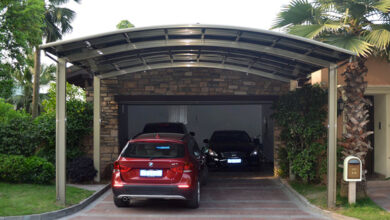
Key Things To Watch Out While Doing Electrical DIY At Home
Let’s be honest! We all have tried doing a few electrical jobs at home, like fixing a broken circuit, changing a wire, etc., thinking we can fix them ourselves! However, it’s also a dangerous attempt, especially when you don’t have the right knowledge of handling electrical work yourself.
It’s a good thing to handle minor issues yourself, especially when it’s an emergency and you can’t reach an electrician nearby. But you need to be trained on the subject before feeling confident in doing electrical DIY at home.
Recent studies by the U.S. Consumer Product Safety Commission have proven that around 400 electrocutions occur in the U.S. every year! So, if it’s a major issue, consider hiring an experienced electrical service like Deadshort Electrical, who will give you the right advice.
Here are the key things to keep in mind before DIY-ing electrical work at home.
Table of Contents
Use the Right Tools
Whenever you are handling an electrical project, make sure to equip yourself with the right tools. If you are working on a wiring project, you will need multiple tools and instruments like pliers, wire strippers, electrical tapes, the correct screwdrivers, and many others.
The best method to protect yourself from accidents is to use GFCI outlets whenever feasible. GFCI (Ground Fault Circuit Interrupter) can monitor how much power is used in one outlet.
This method will help prevent any electrocution, especially when a device uses a single outlet near water sources. The GFCI will break the power if it detects any slightest fault in such cases.
Strip and Cut the Wires to the Appropriate Length
Different electrical codes require different stripped wire lengths depending on the position of the switches or outlets. If you cut your wires too short, it will make the entire connection unsafe.
Further, overly stripped and short wires may be difficult for you to complete the connection. It’s better to do such electrical work by hiring a knowledgeable electrician in Adelaide – they will know the correct wire size for the right outlet or switch.
Ensure Your Fuse is Correctly Sized
Before installing fuses, always make sure they are of the right sizes. Fuses are designed to protect the entire electrical structure of your house.
The major function of a fuse is to cut off the electrical circuit whenever it rises above safe levels. If you install the wrong size fuse, it may cause a major fire breakout!
Practice Electrical Safety
- Before beginning any electrical work at home, always unplug your devices from the socket, and make sure to do so by pulling the plug and not the cord.
- Avoid operating your appliances under a carpet or when the cord is overheated.
- Whenever you fix a bulb, always use the recommended wattage in the light fixtures or lamps.
- Avoid using too many devices simultaneously, especially in a single outlet. It may cause outlet overloads, which is dangerous. Try using a multiple-outlet external power socket if you need to operate multiple devices simultaneously. You can also use one appliance with an inbuilt circuit breaker for added overload protection.
- Never use your appliances in wet or damp areas. If you absolutely have to, then use portable GFCI outlets.
Learn the Difference Between Circuit Breakers and Safety Switches
Safety switches are built to identify potential electrical shocks before it leads to dangerous situations. In other words, safety switches switch off before the occurrence of a shock.
On the other hand, circuit breakers are designed to cut off the power when there’s excessive electrical current usage. Current overuse may lead to wiring or appliances overheating, thus causing electrical fires.
Final Words
We would advise you to handle all serious electrical work with the help of a trained electrician in Adelaide to avoid the risks of harming yourself or your family.








